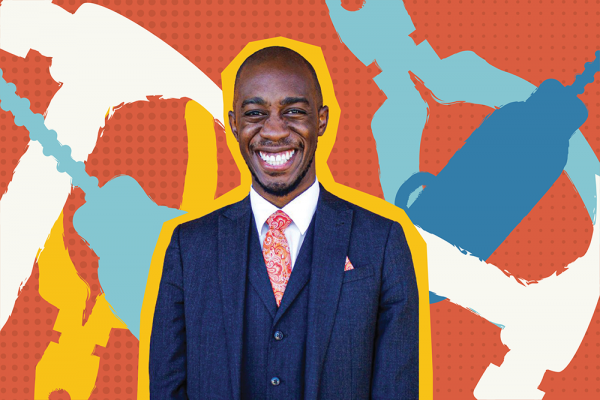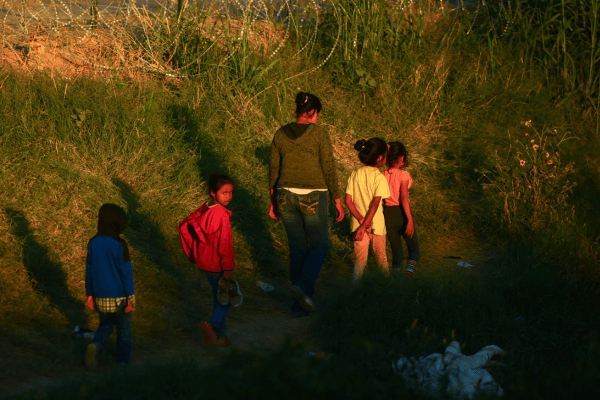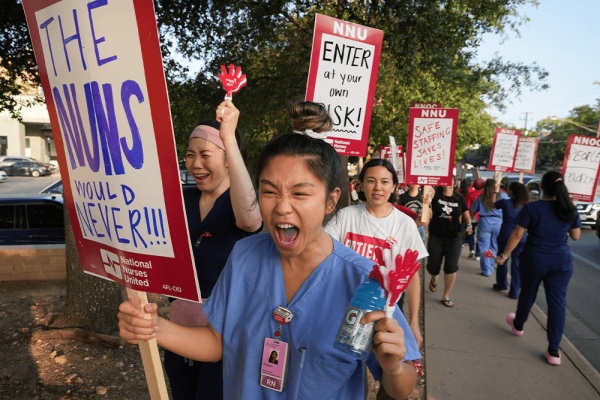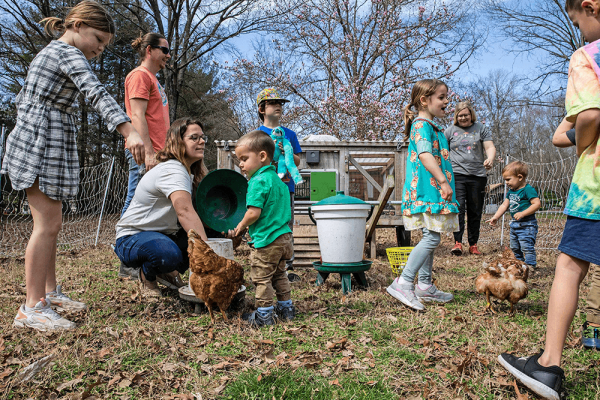I was in high school, visiting my grandparents’ church in Peru, Ind., and the theme for the Sunday school class was “money.” The teacher was quick to bring up a verse that has always sounded like it would be a better fit in Benjamin Franklin’s Poor Richard’s Almanack than the Bible. “The love of money is the root of all evil,” the teacher said, summarizing and abbreviating 1 Timothy 6:10. “It’s not that money itself is evil. Objects, in and of themselves, cannot be evil,” he explained. “It’s a matter of the heart.” That logic sat weirdly with me and so I raised my hand to respond. “Don’t we believe that idols are objects and that they are evil? Also, doesn’t the Bible teach us to resist temptation? So wouldn’t it make sense to resist the temptation of money to avoid all the evil that comes with it?”
According to a recent Pew Research Center survey, religious Americans differ widely on how they refer to the increase in arrivals at the border. While only 45 percent of all U.S. adults say the large number of migrants is a “crisis,” majorities of white Christian groups — 70 percent of white evangelical Protestants, 64 percent of white Catholics, and 57 percent of white non-evangelical Protestants — feel that it is. In comparison, only 32 percent of Black Protestants and 27 percent of the religiously unaffiliated, or “nones,” say the situation at the border constitutes a “crisis.”
A new report from Pew Research Center found that while most Americans think religion has a positive influence on American life, few are willing to have discussions about religious differences.
The report revealed that a majority of American adults (80 percent) would say that “religion’s role in American life is shrinking,” which Pew reported as the highest in the survey’s history. Majorities in each religious group and the religiously unaffiliated say religion is losing influence.
One of the most troubling statistics in the country — the United States’ skyrocketing maternal mortality rate — isn’t much of a mystery to those who work in labor and delivery rooms. Underfunding, gaps in health care coverage, and hospital closures all contribute to the health care system’s state of crisis: When resources are stretched thin, birthing people, particularly Black and Latino people, and their babies don’t get the care they need.
If you had told me 11 years ago at my first contemplative retreat that I had ADHD, I would have been skeptical. I was an organized, overachieving Enneagram 3, a bookworm, and a grown professional woman — not a small bouncy boy disturbing his classroom because of his attention-deficit/hyperactivity disorder. The problem, I was told by all around me, was that I lacked spiritual discipline. But just a few hours into the retreat on a Saturday afternoon, I had to admit I wasn’t excelling at the assignment of stillness and silence.
Palestinians in Gaza held the first Friday prayers of Ramadan outside the ruins of a mosque leveled by Israel’s offensive, one of hundreds the Hamas-run authorities say have been damaged or destroyed by Israeli attacks since October.
Born in Pittsburg on Oct. 9, 1935, Letha was an independent scholar, writer, editor, and writing consultant who specialized in the intersections of religion and social issues. She passed away on Jan. 9, 2024, at a nursing facility in Charlotte, N.C. She was 88.
Her primary metaphor for God was that of a loving friend. She understood Jesus to be the perfect embodiment of the friendship that God offered. For her, this meant that just like a friend changes their likes, activities, and interests due to the growth of a relationship, God also changes because of God’s friendship with us. In any true and deep friendship, both of the friends, as well as the relationship itself, will necessarily shift and adapt. Nothing can stay the same because deep caring calls for responsiveness. “To think God doesn’t change,” Letha said, “doesn’t account for God to have empathy and compassion for us.” She wasn’t striving to put a particular branch of theology into practice, she just trusted her experience.
According to a study by The Washington Post, in states where data was available, homeschool students rose by 51 percent between 2017 and 2023. By comparison, enrollment in private schools rose by only 7 percent. As a homeschool alum, these statistics brought me mixed feelings. I had a beautiful, generous, enriching experience being homeschooled from fifth through 12th grade, but I know others who had the complete opposite experience. I fear that many Americans are beginning to homeschool without knowing that Far-Right, fundamentalist Christians lead most of the networks that offer resources to homeschooling families.
“We call this place Eden,” says Eduardo Rodríguez, gesturing to the location he has suggested for our interview. It isn’t hard to see why. A small stream winds its way through lush tropical foliage and smooth boulders; long vines hang from the canopy and dip into the crystal-clear pool created where the stream cascades in a small waterfall.
Holy Week and Easter are perhaps the most important days in the Christian calendar. Many associate those celebrations with church services, processions, candles, incense, fasting, and penances. However, there is another tradition that many Christians follow — that of tattooing. Historically, Easter was an important time for tattoos among some Christian groups. Today, Christian tattooing happens in many parts of the world and all year around. Some Christians visiting Jerusalem around Easter will get a tattoo of a cross, or a lamb, usually on their forearms.









